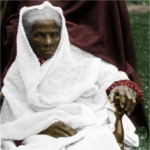|
Surely a big step was the regular deification of emperors. It's maybe not so bad to have to pray to Jupiter and Neptune, but if you have to pray to Augustus you'll lose some who think it's all bullshit. By the time you have to pray to gordian i-iii to stay in the good graces of the current emperor the threads are really showing and the mystery cults including Christianity start looking a lot more spiritually fulfilling.
|
|
|
|

|
| # ? May 13, 2024 18:22 |
|
Epicurius posted:I've recommended the book before, and I'll recommend it again: James O'Donnell's Pagans, which is a look at the transition between paganism and Christianity in the Empire as it was seen at the time (and also, how even after the "empire became Christian", stuff was in a liminal state....paganism got more Christianized and vice versa. It also talks about how, in the Empire, "paganism" didn't exist, really. Pagan is a later, Christian term that lumps together a bunch of different and various beliefs and rituals that vary, not only from one part of the empire to another but even from town to town. Right I vividly remember mike Duncan's description of it as basically copying and replacing the organized structure of the Christian church including the same hierarchy levels.
|
|
|
|
Pagan also carries an implied not monotheistic. Once Christianity resolved its own internal issues with monotheism that arise from the Logos it then absorbs a lot of what was pagan into itself as angels, demons, and saints.
|
|
|
|
An example would be to compare the process of sainthood to an emperorís deification.
|
|
|
|
And yet Plato and Aristotle were always called Pagans in spite of their systems having just one God. Well, some would dispute that but it's a common enough view. And there was a lot of syncretism or eclecticism in Antiquity. You take what clearly works or makes sense and discard the rest. Julian did that with Christianity and before him Porphyry (the student of Plotinus who is why we even know who Plotinus, the most famous Platonist after Plato, is) tried to promote a Platonic theory of universal salvation. Some theorize Christianity's appeal was its egalitarianism in this life and the next. Porphyry tried to match that by saying all could be saved via Platonism as well, but in a hierarchical way because he was a Platonist. Philosophy would equal the best salvation but less able people could make do with rituals. All forms of Platonism are absolutely fascinating to me. edit: Sorry if it sounds pretentious that I have to explain who Porphyry or Plotinus are. You all probably know and I didn't have to do that. I just don't know how popular intellectual or philosophical history is compared to other things. It's like how milhist bores me to tears but everybody loves it. NikkolasKing fucked around with this message at 20:04 on Dec 20, 2020 |
|
|
|
NikkolasKing posted:And yet Plato and Aristotle were always called Pagans in spite of their systems having just one God. Well, some would dispute that but it's a common enough view. Right and I was under the impression that this sort of monotheism was growing in popularity during the middle imperial period and showing with like the cult of invictus sol.
|
|
|
|
NikkolasKing posted:
No, it's not. Plenty of us are interested in history but have no real academic study therefore i highly encourage these sorts of factoids. Had no idea who Porphyry or Plotinus are
|
|
|
|
When and how strongly they (Plato and Aristotle) are called Pagans is an important question though. The apologists basically go: the philosophy schools are talking about the Logos and the Logos is Jesus. So nothing they have to say contradicts Christ and they are talking about itís deity. When Justin Martyr says ďthis is the only adequate philosophyĒ about Christianity he means that in the sense of Stoicism, Platonism, Epicureanism, etc. It also radical expands who philosophy is available to. I mean for the Stoics not everybody can be a logikos and really be wise. But in Christianity everyone can know the Logos and be a bother or sister of Jesus. Think of syncretism and go further. Not just we take what works from other religions, but if it is true it is in Christ. Again Justin Martyrís : ďAll the truth is oursĒ in responding to Celsus. But that all eventually gets dialed back.
|
|
|
|
NikkolasKing posted:And yet Plato and Aristotle were always called Pagans in spite of their systems having just one God. Well, some would dispute that but it's a common enough view. Plato does seem pretty monotheistic in, e.g., the Timaeus, but his version of Socrates (and probably Plato himself) still gave lip service to the traditional gods, though not to the myths about them. Xenophon's account of Socrates seems more conventionally pagan. There's an element of defensiveness there, of course; Socrates was forced to drink hemlock in part at least nominally for rejecting the gods of Athens and introducing new divinities, and both Plato and Xenophon are very keen to establish that the execution of Socrates was unjust. (They also, of course, had no desire to be forced to drink hemlock themselves.)
|
|
|
|
Dalael posted:No, it's not. Plenty of us are interested in history but have no real academic study therefore i highly encourage these sorts of factoids. Had no idea who Porphyry or Plotinus are Well I'm in the same boat. I like intellectual history and philosophy so a lot slips by me which is why I like this thread so much. But yeah, if you've ever heard the term "Neoplatonism." Plotinus founded that poo poo. How much his ideas diverged from Plato's is a matter of some debate - Neoplatonism is an anachronistic term and everybody back then would have just thought of themselves as true blue Platonists. Some time after Plato died we had "Middle Platonism" whose most famous representative is probably Plutarch. Famous for his Lives now but he was also a committed philosopher with a lot of theories from a Platonic perspective. But then Plotinus swept them all aside and the next big ones are Porphyry and Iamblichus They had different approaches to Neoplatonism that are kinda too vague to get into. The biggest Neoplatonist after Plotinus was Proclus who was pretty much the last great Neoplatonist pagan philosopher. His writings have had a lasting influence even to this day - Edward Butler is a living, trained philosopher who interprets Platonism as polytheistic , mainly influenced by Proclus. He speaks and writes and promotes his polytheistic views from that perspective. And of course all of them influenced Christianity to some extent. I've recently been reading a lot about Origen, one of the most important early Christian theologians, and a lot of scholars agree he was a student of Plotinus' teacher. But he and his ideas were condemned as heretical fairly early on so you couldn't just come right out and cite him, even as he influenced the great theologians to come. Funny thing is a lot of the current studies on him are from Catholics trying to distance him from Platonism and establish what a good Christian he was. If you are interested in a quick breakdown of how Neoplatonism (supposedly) differed from Plato's own ideas, check out this chapter. https://www.academia.edu/2915262/How_original_was_New_Platonism_in_the_Platonic_tradition And then there was the Renaissance Neoplatonists! Speaking of heretics... The history of Platonism is very cool.
|
|
|
|

|
|
|
|
Sol Invictus too even before Jesus
|
|
|
|
Sun worship is the most logical religion because the sun proves it's existence every single day, we literally couldn't live without it, and one day it will destroy earth. Basically the perfect god. Makes no demands. FreudianSlippers fucked around with this message at 22:34 on Dec 20, 2020 |
|
|
|
If I got this reference right I'll be proud of myself. Varangian Guard
|
|
|
|
I don't think Christianity entered the Roman world as an alternative recipient for the same type of reverence, but rather as an entirely different way of acting out religion. A perspective like this makes sense if the pre-Christian religion had the same role as Christianity: twerking on the railroad posted:It's maybe not so bad to have to pray to Jupiter and Neptune, but if you have to pray to Augustus you'll lose some who think it's all bullshit. By the time you have to pray to gordian i-iii to stay in the good graces of the current emperor the threads are really showing and the mystery cults including Christianity start looking a lot more spiritually fulfilling. But it didn't. That's why the Romans were so tolerant of religions in their conquests, the main "god" was the state. Sacrificing to a god at a temple was a way of acknowledging the power of the state. It wasn't pure earthly and transactional of course, but it wasn't the strong spiritual devotion we think of when we think of religion today. The type of superstition associated with sacrifice goes back to the stone age and it still exists, in the form of tossing coins into wells and fountains. Making the emperor a deity seems strange to us now, but it makes a lot more sense as a recipient of sacrifice that can be monitored and enforced by local authority. "Please Jupiter rid us of this terrible emperor" isn't very patriotic, go make a sacrifice to the emperor or else! It's not too dissimilar to church and crown conflicts in medieval times. Kings are arguably deified politically way into the modern era, still in North Korea. Rubens certainly made one of James I in the ceiling of the Banqueting House in the 1600s. The persecution of the Christians starts when they refuse to sacrifice, not because they didn't believe in Jupiter. I think it's not entirely dissimilar to our lives in meeting extreme Islam. We perform Christian rituals such as Easter and Christmas even if we are complete atheists by acting out certain traditions, we "sacrifice" by gifts, feasts and shopping and we associate perhaps little heartfelt spirituality with it. Early Christians would probably react like ISIS if they were told how we act out our Christian traditions. Perhaps some would say that rebelling against our capitalist shopping sprees is a sin that our state would judge as harshly as the Romans did the non-sacrificing Christians, I wouldn't quite agree but I think it has an interesting congruence without being entirely parallel.
|
|
|
|
You're also not praying to Augustus. You're praying to the genius or the numen of Augustus. Augustus has a genius, but so do you, and so does the city of Rome, and your house, and the roads outside your house, and Mt. Vesuvius. It's a different sort of thing.
|
|
|
|
FreudianSlippers posted:Sun worship is the most logical religion because the sun proves it's existence every single day, we literally couldn't live without it, and one day it will destroy earth. Someone should let the aztecs know wrt the whole no demands thing.
|
|
|
|
There was a lot of early christianity that was shaped by being counter to the imperial institutions of power, to the point that when I was learning about the First International, I saw a lot of similarities with the Council of Nicea. A lot of veterans of persecution trying to argue about who's really a true believer. Of course, when you're being called up by the emperor, you're gonna be a lot friendlier to the established power structures, although they still did jettison a significant amount of sects as heresies every time. And the rebellious aspect of christianity would pop up again many times in the future, no matter how the mainline churches wanted to keep it orderly.
|
|
|
|
Gaius Marius posted:Someone should let the aztecs know wrt the whole no demands thing. Look, the sun god didn't demand blood but the mesoamericans knew that sometimes the gods need a little help and we're more than willing to provide it on their own initiatives in the form of blood, skin, and hearts. Not that big a cost to make sure the sun doesn't go out, it's like a big thank you card but written in blood.
|
|
|
|
Ola posted:The persecution of the Christians starts when they refuse to sacrifice, not because they didn't believe in Jupiter. This is a super important point to emphasize. Trajan's letter to Pliny the Younger said that accused Christians should be let go if they are willing to sacrifice to the gods. Under the emperor Decius in 249, all residents of the Empire were ordered to conduct sacrifices, a measure targeting Christians who refused to do this. The defining feature of Roman "pagan" religion was not ritual practice, not belief. Roman religion operated under a very different framework then modern monotheistic religions do. The idea that the imperial cult undermined Roman religion and laid the groundwork for the rise of Christianity is a common pop-history myth, because that makes sense to modern religious sensibilities. It's not actually true though. Another important point to emphasize is that non-Jewish Romans had a far more flexible idea of divinity. Jews obviously also held this view, but they were fairly insular, practiced sacrifices that could be adapted to appease Roman authorities, and also frequently clashed with Rome. The exclusivity of divinity only became a common idea in Rome with the rise of Christianity. Prior to the rise of Christianity, the dominant viewpoint was that there were many gods. This seems well known, but what people often assume is that this means there were a fixed number of gods, like the 12 Olympians and some others that go with them. It was much more flexible then this. Romans, especially later in the empire as things became more cosmopolitan, frequently worshipped all sorts of gods beyond the ones we usually think of as "Greco-Roman." There was even a temple in Rome devoted to unknown gods, so they could give sacrifices to gods they did not know about yet! Not all of these many deities were equal though. Hundreds of deified (non-emperor) humans were worshipped as gods across the empire, sometimes across the whole empire, sometimes locally. These formerly human deities were considered less important then major gods, like Jupiter, but that was fine. Many other gods and goddesses straddled this line. Not all deities had to be equal. In this environment, sacrificing to the emperor as a minor deity seemed reasonable. Some, or even possibly most, people no doubt viewed this as a political maneuver. However, that didn't mean that they would have also viewed it as illegitimate or heretical. There was no distinction between religion and politics in Rome, or most ancient cultures for that matter. And not just in the sense of a lack of the modern idea of separation of church and state. It was widely believed that gods regularly interfered in the lives of humans and in the affairs of state. The gods were deeply concerned about, and involved in, the politics of the empire. A god did not have to be above the fray in order to be divine. Sacrificing to a short lived emperor like one of the Gordions who was immediately deposed did not undermine the system. It actually fit right in, as strange as that may seem to modern eyes. After all, Jupiter only became the chief god after overthrowing his father.
|
|
|
|
Grand Fromage posted:Gradual transformation. Christianity spread through the Roman population, apparently in the upper classes, over time. The classical religion slowly dwindled as Christianity became more popular, but it took centuries--there are references to people still worshipping the Greek pantheon well into the early Middle Ages. And of course Christianity took a lot of stuff from classical religion. Didn't Theodosius I ban a bunch of traditional pagan practices? Was this just not often enforced?
|
|
|
|
limp_cheese posted:If I got this reference right I'll be proud of myself. Yeah lots of Saxons who lost their lands to the Normans ended up as Varangians.
|
|
|
|
Weka posted:Didn't Theodosius I ban a bunch of traditional pagan practices? Was this just not often enforced? Enforcement is hard to say. He did ban a bunch of practices, I was talking more about like just the concept of being non-Christian was not actively persecuted. Some of the Christian persecutions had been designed to force Christians to reveal themselves and be subject to punishment or death. I don't believe anything like that happened in reverse in the empire, but I wouldn't put money on it. Even much later in the age of the Crusades there are non-Christians in the empire and they were at least legally permitted to do their thing. There were mosques in Constantinople and such.
|
|
|
|
Grand Fromage posted:Enforcement is hard to say. He did ban a bunch of practices, I was talking more about like just the concept of being non-Christian was not actively persecuted. Some of the Christian persecutions had been designed to force Christians to reveal themselves and be subject to punishment or death. I don't believe anything like that happened in reverse in the empire, but I wouldn't put money on it. Even much later in the age of the Crusades there are non-Christians in the empire and they were at least legally permitted to do their thing. There were mosques in Constantinople and such. I mean, Honorius almost passed a law banning non-Christians from having positions in the Imperial Palace, but didn't when he realized that one of his leading advisors wasn't Christian.
|
|
|
|
Ritual may have been what the government enforced about religion, but that doesn't mean that belief is unimportant for a religion's traction among the public. Like sure imperial authority was backing the imperial cult, but if the rest of your opinion of these so-called gods is that they were just a bunch of wealthy and powerful dead jerks and losers, you're gonna skip out on that religion any chance you get. It's like how enforcing the use of an endangered language in schools won't fully revive it, a lot of kids may just resent it.
|
|
|
|
Epicurius posted:I mean, Honorius almost passed a law banning non-Christians from having positions in the Imperial Palace, but didn't when he realized that one of his leading advisors wasn't Christian. Being banned from a job is a bit different than being rounded up and set on fire, imo.
|
|
|
|
SlothfulCobra posted:Ritual may have been what the government enforced about religion, but that doesn't mean that belief is unimportant for a religion's traction among the public. Like sure imperial authority was backing the imperial cult, but if the rest of your opinion of these so-called gods is that they were just a bunch of wealthy and powerful dead jerks and losers, you're gonna skip out on that religion any chance you get. I would also add that belief seems to have mattered somewhat more to classical-era Greeks than to Romans; the accusation of impiety against Socrates concerned his allegedly promoting unbelief in the traditional gods, rather than lack of ritual observance.
|
|
|
|
Grand Fromage posted:Being banned from a job is a bit different than being rounded up and set on fire, imo. Right, but what I mean was the idea that Theodosius actively persecuted non-Christians to that level that they became marginalized is sort of disproved by the fact that one of his son's top advisors was pagan, and that Theodosius never banned pagans from positions in the Imperial Household.
|
|
|
|
Yeah, after Brexit Turkey might be the only European country that still takes British workers.
|
|
|
|
Wasn't one of the Luther's reasons for translating the Bible that despite people being nominal Christians they were still essentially following pahan beliefs?
|
|
|
|
Seems to me syncretism is much more like the standard over the vast majority of history and the starkly codified doctrines and mutual exclusivity of modern abrahamic faith is the aberration. For example itís perfectly fine to be both shinto and buddhist in Japan (and hell, to be atheist on top of that, and kami arenít exactly gods in the sense westerners understand them anyway, something shinto has in common with most ďgodsĒ to romans too)
|
|
|
|
Syncretism and multiple traditions is most common, yeah. Exclusive religions are relatively rare all things considered, and forced conversion is even rarer. Monolithic, moncultural societies just aren't that common, and most of the time even societies that look like that at first glance are a lot more complicated when you get a better understanding. Japan or Korea being good modern examples there. Monolithic societies would mostly be prehistoric clan village kind of deals, there's not going to be a lot of cultural variation when your entire society is like, 120 people.
|
|
|
|
Zopotantor posted:Yeah, after Brexit Turkey might be the only European country that still takes British workers. I can only pray that the great nation of Sakartvelo shall welcome me.
|
|
|
|
Christianity is Rome is such a complicated topic. Itís so nuanced
|
|
|
|
Whorelord posted:I can only pray that the great nation of Sakartvelo shall welcome me. Sakartvelo on my mind
|
|
|
|
Whorelord posted:I can only pray that the great nation of Sakartvelo shall welcome me. No problem, just learn the language. Wikipedia posted:There are also frequent consonant clusters, sometimes involving more than six consonants in a row, as may be seen in words like გვფრცქვნი gvprtskvni ("You peel us") and მწვრთნელი mts'vrtneli ("trainer").
|
|
|
|
 https://www.artstation.com/bobmarshall Y'all might like this artists work. He does digital historical reconstructions. Also these artists: https://www.artstation.com/jrcasals https://www.artstation.com/pazirik
|
|
|
|
I have some detailed questions about prehistory --> early Bronze age. Hoping someone here has the knowledge base to answer or can point my in the right direction. I recently read Steven Mithen's "After the Ice" which explores human development between 20,000-4,000 BCE across almost every region of the world. Most of the book is about the transition or interaction between hunter gatherers and prehistory farming cultures. Iíve had a latent interest in the ancient Levant & Mesopotamia, and the timelines in this book have brought up some questions for me. Question 1 Mithen states that agriculture, or at least horticulture, arrived to the Nile valley (Fayum) from Western Asia in around 5000BCE, with his evidence being new farming communities suddenly appearing completely intact (no evidence of a step-wise development in the native region) with architecture & tools identical to those found in Western Asia. If this is true, would it be fair for me to draw the inference that the Ubaid Period cultures of Western Asia gave rise to both the Egyptians and Mesopotamians? If we think about things broadly enough, I guess we can say that the Western Asian farming are the progenitors of many of the major ancient prehistory civilizations. By virtue of the migration of Western Asian farmers being responsible for the development of agriculture in Eastern Europe, Central Asia, and India, we can for example say they lead to the Indus River Valley culture. What strikes me as different with the Egyptians is the narrower timeframe. All of the above migrations occurred at 7500BCE, when there were still many different farming communities in the Fertile Crescent. After 6500BCE the farming communities of the Western Levant (Jordan Valley) collapsed and we began conceptualizing the farmers in the Eastern Levant as the Hassuna & Samarra --> Ubaid Period cultures. If the migration of horticulture to Egypt from Western Asia occurred in 5000BCE to me that would suggest it would be people directly from those cultures, meaning the Egyptians and Mesopotamians share a much closer common ancestor culture. Nowhere in the book does Mithen actually state this. I put this hypothesis together based on the dates he provides. I also can find nothing online that even comes close to making this inference. Which makes me feel I am making some sort of cognitive misstep in my thought process? Question 2 From previous reading my understanding is that there is the concept of a Semitic Kish Civilization that began in the Western Levant in the 4th millennium BCE that would go on to be the heritage culture of the Kingdoms of Ebla, Maria, & Nagar in the 3rd millennium BCE, as well as the Mesopotamian cities of Kish and Nippur. As mentioned in question #1, Mithenís book tells me that there were several farming cultures in the Western Levant (specifically Jordan Valley), but that they collapsed after 6500BCE with all towns being abandoned. The book never touches on the Western Levant again. It also mentions that the farming cultures that would become Sumerians started in the North as the Hassuna culture, and spread south, adopting new architecture and pottery, which we know as the Samarra culture. If I combine these two pieces of knowledge, I feel like there is a missing puzzle between 6500BCE Ė 4000BCE. What happened to the people of the failed agricultural communities of the Western Levant? Did they become the Kish in the proceeding 2,500 years? Did they even return to agriculture or were they nomadic pastoralists or something else? Or were the Kish a different group of people entirely that ended up in the same geographic area? Furthermore, if the root of the farming cultures that became the Sumerians started in the North, how did the Kish successfully gain a foothold in Northern cities like Kish & Nippur? Are there any books or academic articles that tackle these questions?
|
|
|
|
Anyone have any recommended reading about Rome and it's neighbors during it's early history? I'm interested in reading about Rome's Italic and Etruscan neighbors before they became Romanized, when Rome was just another city in Italy.
|
|
|
|

|
| # ? May 13, 2024 18:22 |
|
Mustang posted:Anyone have any recommended reading about Rome and it's neighbors during it's early history? I'm interested in reading about Rome's Italic and Etruscan neighbors before they became Romanized, when Rome was just another city in Italy. Tim Cornellís The Beginnings of Rome is a really good read. obviously Rome-focused but it has a fair bit of detail on Etruria.
|
|
|






































